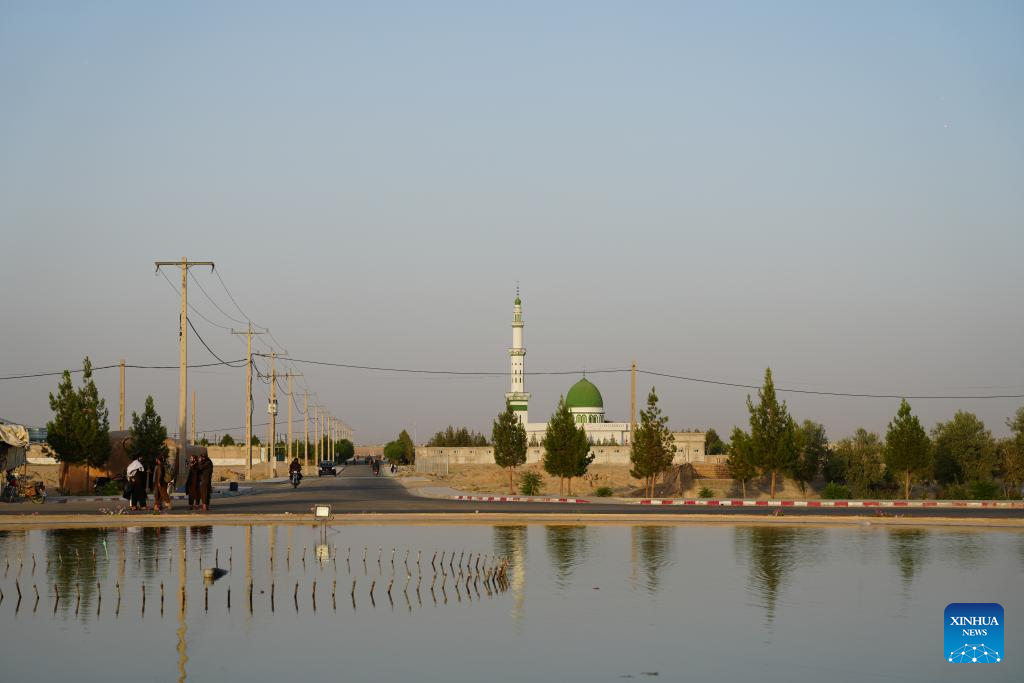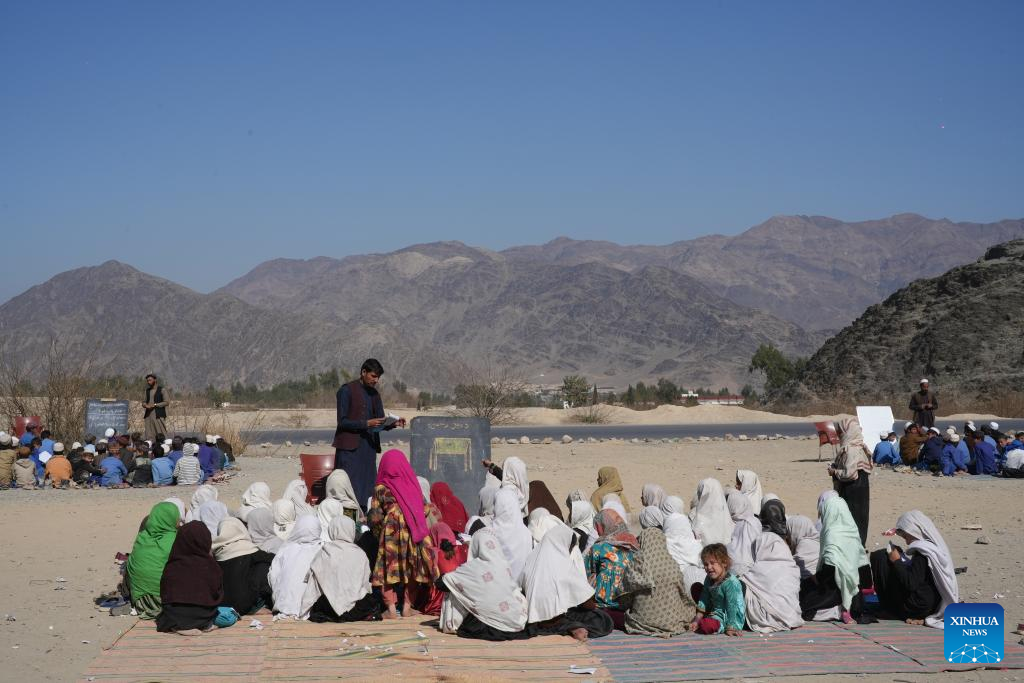


This photo taken on June 15, 2025 shows a view of the Kandahar in southern Afghanistan. (Xinhua/Li Ang)
KABUL, Aug. 28 (Xinhua) -- As Afghanistan marks the fourth anniversary of its interim government, the nation finds itself at a pivotal moment, balancing notable progress with enduring challenges.
Since reclaiming power in August 2021 following the withdrawal of U.S.-led forces, the interim government has placed security, governance and economic recovery at the top of its agenda. Four years on, large-scale terrorist attacks have declined, checkpoints in Kabul have eased, and concrete blast barriers are gradually disappearing from the cityscape.
The interim government has also achieved self-sufficiency in 130 sectors, while trade with neighbors and beyond has expanded. The afghani has remained relatively stable against the U.S. dollar in the past year.
"Day by day, the economy is improving," Afghan economist Laal Zazai told Xinhua. "Billions have been invested, the currency is steady, and efforts to curb terrorism and narcotics while boosting trade continue."
Over the past four years, Afghanistan has also upgraded its diplomatic missions to ambassadorial status with some countries.
Despite these achievements, Afghanistan faces severe challenges. Political expert Amanullah Hotaki said sanctions and foreign interference remain key obstacles. "Westerners dragged us into conflict and ruined our economy," he said. "The government must now listen to the people and solve their problems."
The return of more than 2 million Afghans, including half a million children, from Iran, Pakistan, and other countries in 2025 alone, as reported by UNICEF, has intensified competition for scarce jobs.
Zainul Abidin, a laborer in Kabul, waits daily at intersections for work that rarely comes. "Since the migrants returned, job opportunities have vanished," he said.
Similarly, Talee Mohammad, a shopkeeper, lamented the decline in trade due to reduced international aid, sanctions, and limited government salaries. "Business and profits have dwindled," he said. "Sanctions have taken their toll."
In agriculture, Farmers like 63-year-old Abdul Manan, who cultivates three acres in northern Kabul, face dwindling yields. "Water shortages have reduced our harvests compared to previous years," he said.
One of the most pressing social issues is the closure of schools for girls beyond grade six. Arezoo, a teacher at a private school in Kabul, expressed her worry, "Afghanistan's education system has made some progress, but the path for students, especially girls, is very difficult. We hope all schools can reopen to give Afghanistan a brighter future." ■

This photo taken on Feb. 12, 2025 shows girls attending a class at a roadside school near Jalalabad City in Nangarhar province, eastern Afghanistan. (Xinhua/Li Ang)
点击右上角![]() 微信好友
微信好友
 朋友圈
朋友圈

请使用浏览器分享功能进行分享
